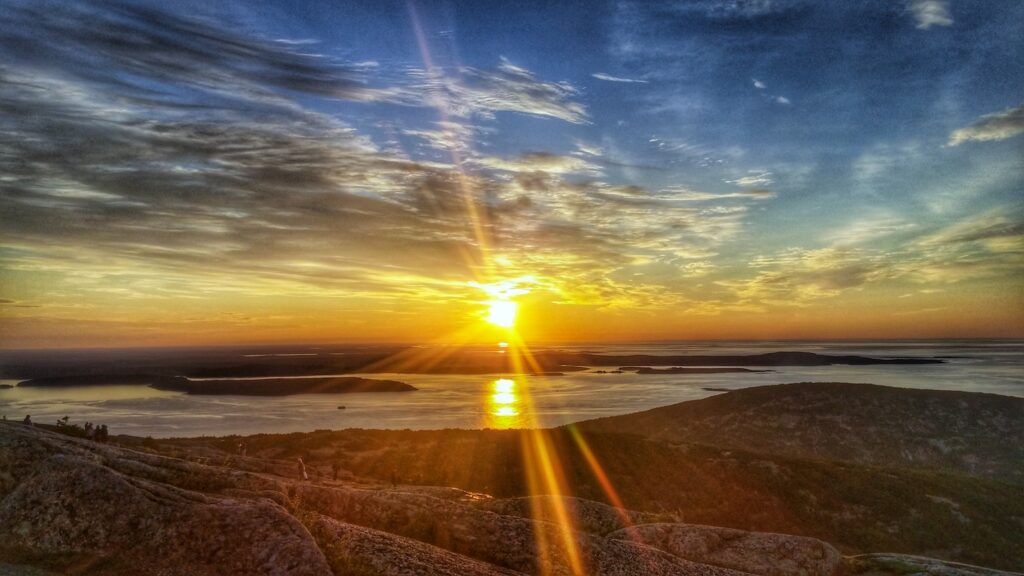Three years ago, my husband Rob, 7-year-old son Ben and I had just arrived at Acadia National Park in Maine after a six-hour drive. We had kept to our plans as encouraged by my father, who wasn’t feeling well and was undergoing tests back in Boston.
Almost the moment we pulled into our motel parking lot, the phone rang with the news that Dad was headed to the ER. Hours later came his diagnosis—pancreatic cancer.
Distraught, we decided to try for a few hours of sleep and drive back home in the morning. As the sun rose, Rob said he wanted to leave town by way of a stop on top of Cadillac Mountain, an iconic feature of Acadia’s landscape. “Let’s be real,” he said, referring to the emotional turmoil we were all feeling, “we’re never coming back here.”
My father died in late 2019, a little over a year after that traumatic moment. Then came COVID. And then, sometime last winter when we were starting to turn our attention toward the possibilities of summer travel, I brought an idea to Rob: let’s go back to Acadia.
It wasn’t just the allure of an outdoor vacation with our vaccine-ineligible 10-year-old. It wasn’t even the draw of returning to one of the national parks, places where I have long drawn inspiration and made positive family memories.
Instead, I realized ways in which the isolation and uncertainty of the pandemic had conflated with my grieving process. I felt that returning to Acadia, to fully experience the awe of the vast forests, mountains and ocean of the park’s landscape, would help me take healing steps through the grief of both my family’s loss and the pandemic.
We knew the emotional heft of the trip would require a little extra planning. We chose to stay on a totally different side of the park this time. We went for meals and ice cream on the other side of Bar Harbor, the park’s central town, away from any place we had seen before. And when we took a lobster fishing excursion that launched from a place of uncomfortable familiarity, Rob and I took a moment to acknowledge the feeling, hold hands and walk quietly through it.
Authentic positivity means not only pursuing joy but also meaning, returning to beautiful places while acknowledging that pain is part of memory. At no point was that more poignant to me than when we stood at the top of Cadillac Mountain, this time at sunset rather than sunrise. Three years ago, the mountain had been shrouded in mist, a terrible, awe-inspiring fog that obscured everything below and around us. But our return visit was bright and clear, revealing the fullness of everything the light touched.
From the rocky overlook, we could see it all—the places we had spent dizzying, grief-stricken moments years before and the places where we had just made new memories.
Watching my family clamber over the rocks against this stunning backdrop, I realized we were walking in our own footsteps, revisiting a hard place and finding that something powerful and meaningful had lingered here, waiting for our return.







